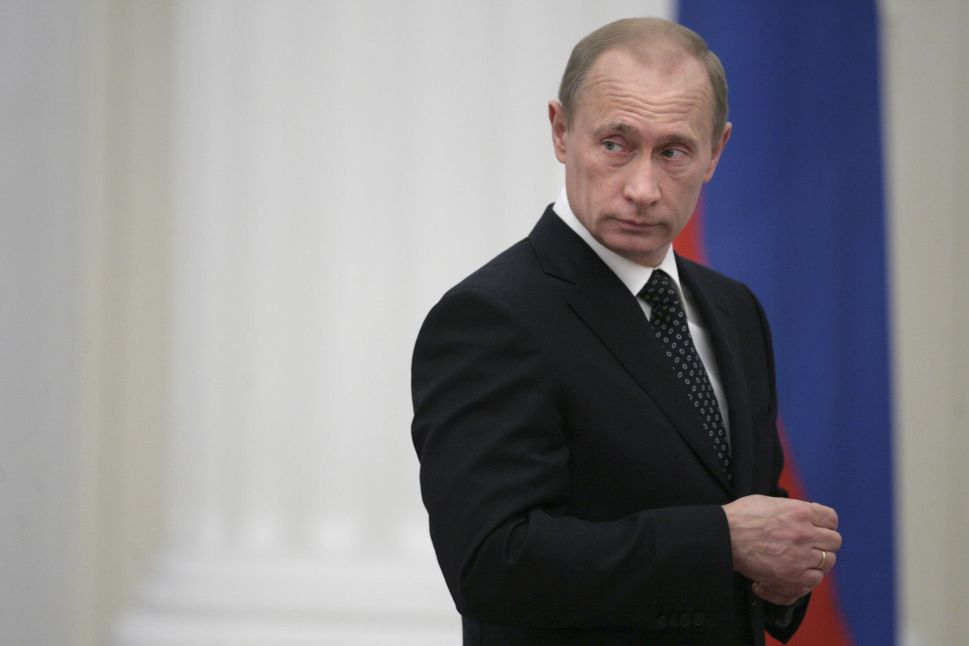
In a cyber-invasion of catastrophic proportions, the Kremlin successfully infiltrated American public opinion during the 2016 presidential election through manufactured, right-wing social media profiles, and the ideological warfare by Russian Twitter bots continues at present. After the International Olympic Committee announced on Tuesday that Russia would be banned from the 2018 Winter Games due to mounting evidence of illegal doping, Twitter was almost instantaneously set aglow with retaliation from accounts linked to Russian-backed propaganda.
Much like their reactions to Robert Mueller’s probe and evidence of cyber-hacking during the 2016 election, Russian heads of state played the role of the baffled victim, a baseless method that, under the colossal pile of evidence presented against Russia’s illegal doping program, brings the sanity of the Kremlin into question. Russian President Vladimir Putin reffered to the ban as “an absolutely staged and politically motivated decision” during his announcement for re-election, and former Soviet leader Mikhail Gorbachev remarked, “This is a disgrace that undermines a very important institution of international cooperation. From the very outset, I supported restoring [Russia’s status.]” Similar outcries of rage and indignation from falsified Western citizens surfaced on Twitter.
Hamilton 68 Dashboard, a program that tracks and analyzes data on Twitter linked to Russian propaganda, has successfully called out Russia’s dishonest and calculated approach to PR following the ban. Started by a group of U.S. intelligence experts known as the Alliance for Securing Democracy, Hamilton 68 quickly began detecting an influx of Russian bots retweeting information from Russian state-backed media outlet RT, articles from the Kremlin-linked site Fort Russ (which featured titles such as “The Olympics as a Tool of the New Cold War”), and a constant flow of rhetoric branding the ban as an attempt to discredit Putin’s run for reelection.
In September, amid accusations of election meddling, Putin stated, “We have very high suspicions that because of our alleged ‘meddling in the U.S. elections,’ they’d like to create difficulties prior to the election of the President of Russia.”
Turning bad press into good press, the Olympic ban sets the stage for Putin’s overt campaign theme of undeserved Western scrutiny. “Such difficulties would create pressure on Putin’s presidential campaign,” reads the Fort Russ article highly circulated by Russian Twitter bots, “if he is running, based on the dissatisfaction of society at large if ‘government-sponsored doping’ is to blame. At that, the World Anti-Doping Agency (WADA) has no concrete evidence that this is the case.”
Russia’s Twitter-heist of the American conversation doesn’t end with the Olympics. Hamilton 68 found the eruption of sexual harassment allegations and repercussions are trending topics among Russian bots. Amid the resignations of Democrats Al Franken and John Conyers as well as the heated debate surrounding pedophilia accusations against Roy Moore, Hamilton 68 reported “roughly a 50-50 split between articles defending Roy Moore and those attacking other men, particularly Al Franken and John Conyers.” To those who follow Russian bot activity on Hamilton 68, the news that a Russian Twitter bot posing as a Connecticut woman named Linda Flores accused Sen. Richard Blumenthal in November did not come as a surprise. A simple Google reverse-photo search revealed the real Linda Flores as a Texan woman who had nothing to do with the Twitter accusation, but the story had already been picked up by right-wing media outlets.
The theme of Russia’s perceived unjust victimization is best portrayed by the #NoRussiaNoGames hashtag, which is aggressively circulated by Russian media outlets to manufacture opinion within their own borders as well as those of the United States. “What we’ve got here is a small but genuine hashtag campaign, which is being exaggerated and amplified by Russian state propaganda outlets to make it look like the campaign is huge and an upwelling of popular anger,” Digital Forensic Researcher Ben Nimmo told Reuters, who conducts data analysis for the Atlantic Council in Washington. Kremlin propagandists are expertly using their own weaknesses to create an artificial sense of national solidarity that will propel Putin to re-election, proving the power of social media bots to turn any conversation about Russia into a positive one.

